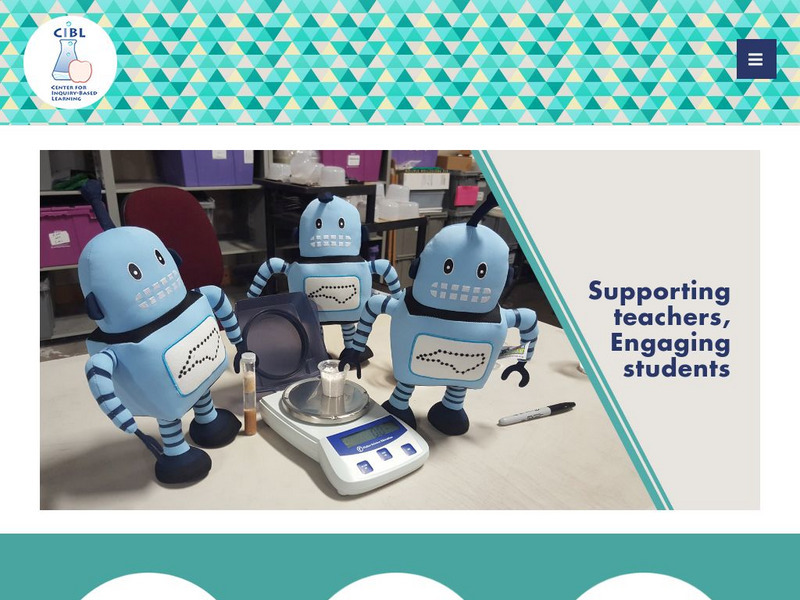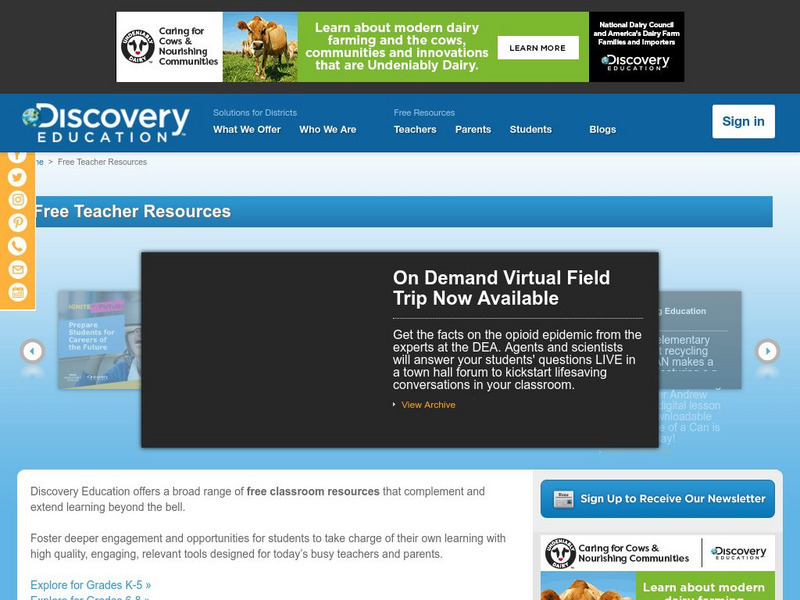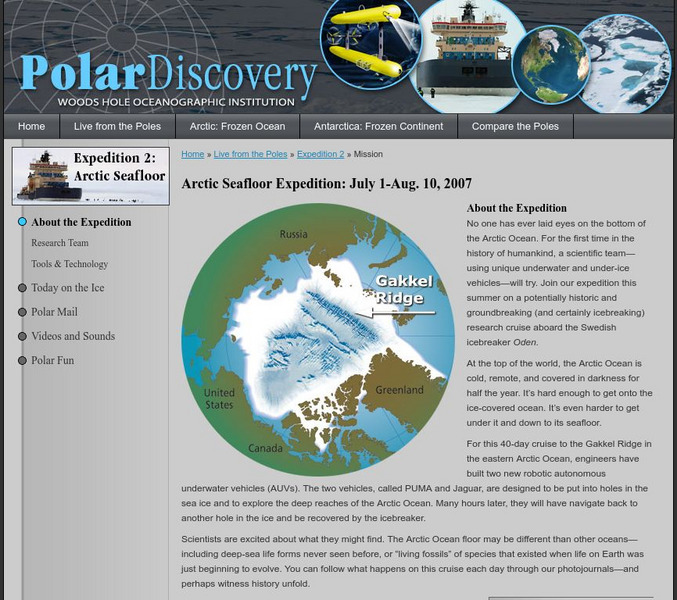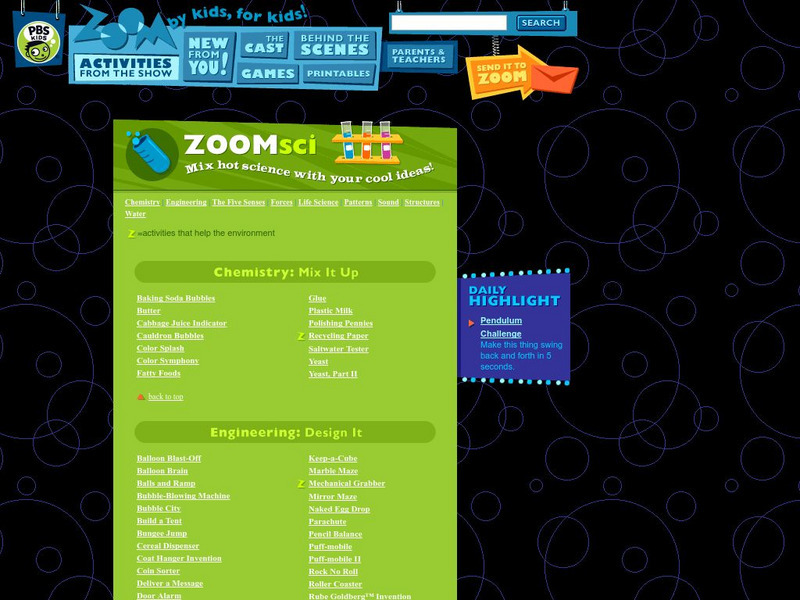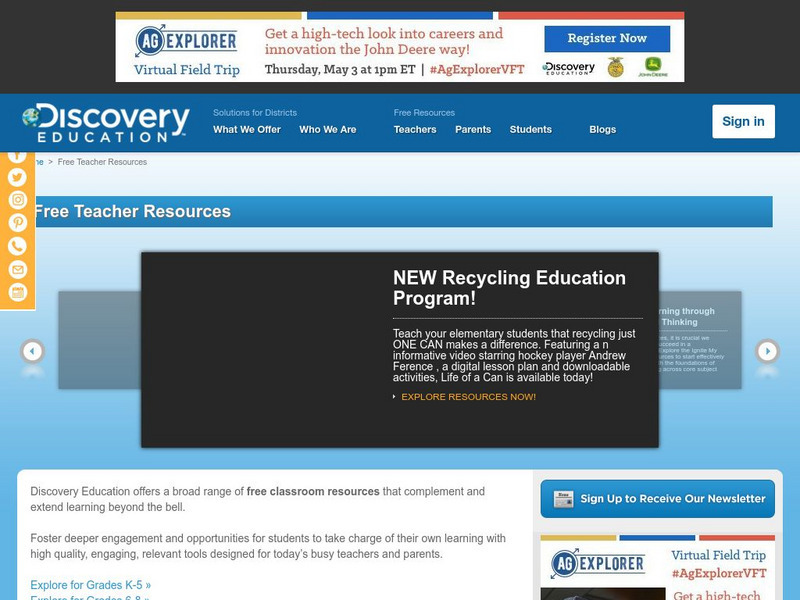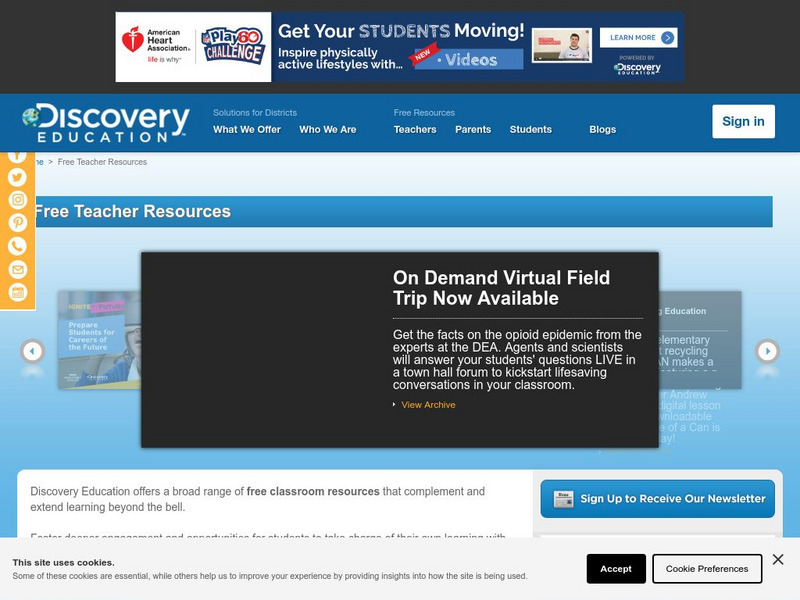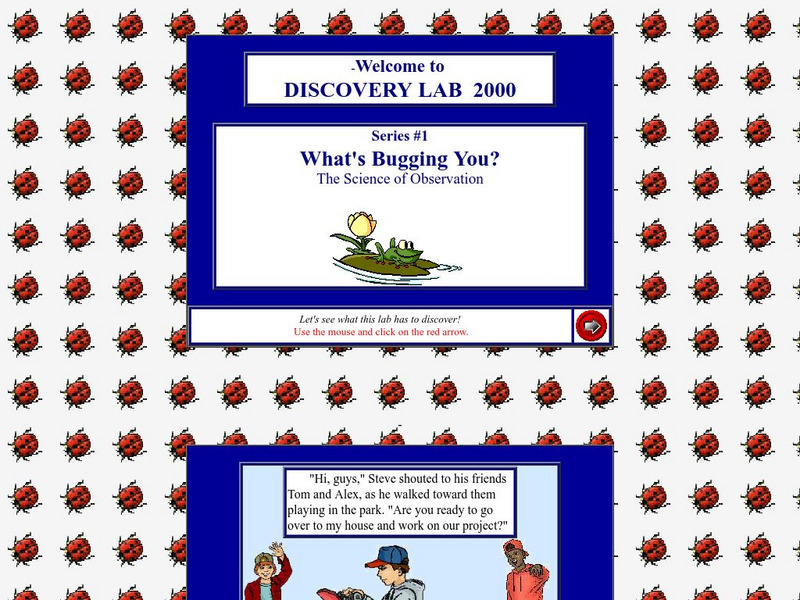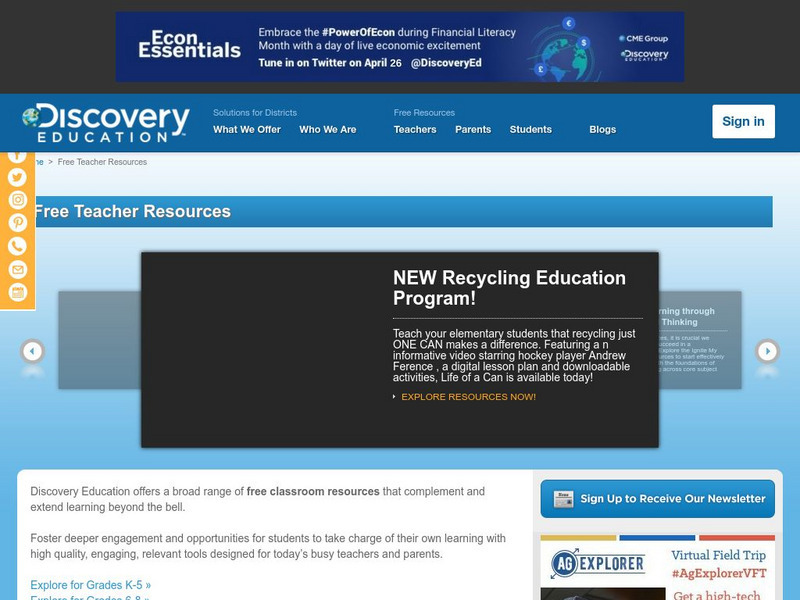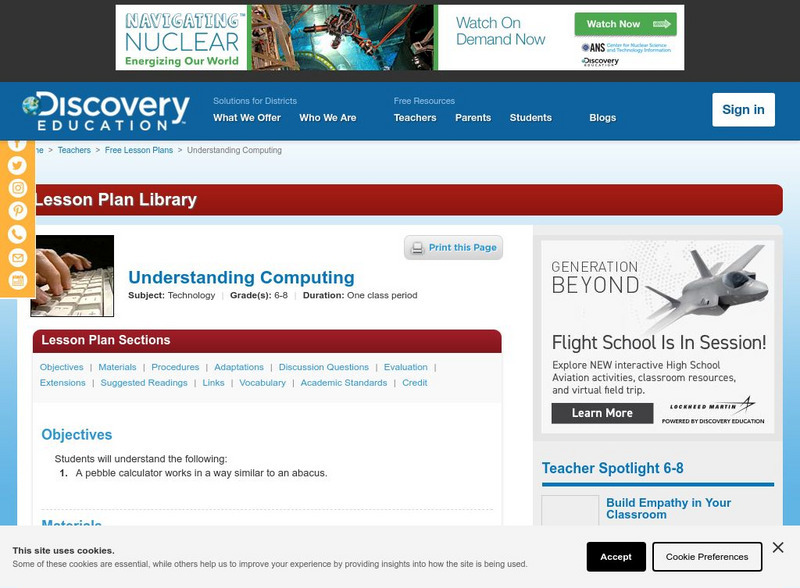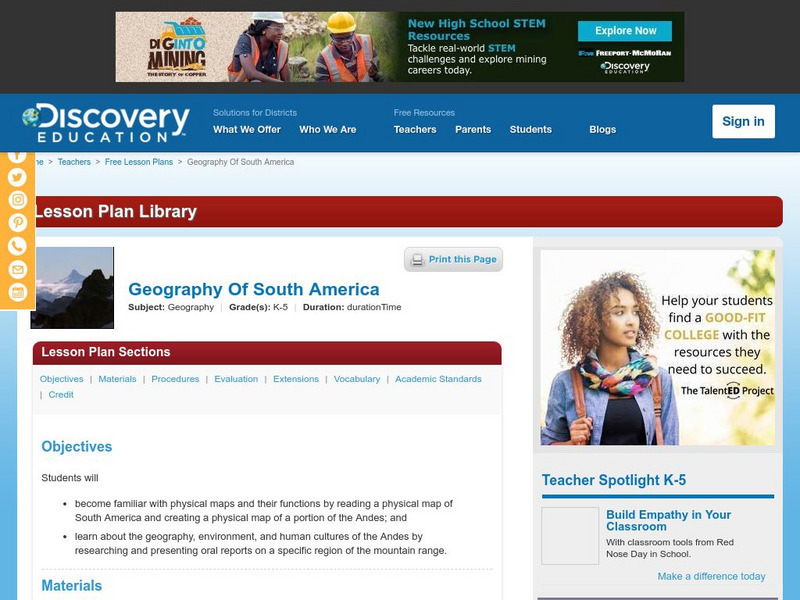Hi, what do you want to do?
Curated OER
My How Things Have Changed
Eighth graders discuss the impact geography had on hunter-gatherer societies, their toolmaking. They work in groups to create a Web page that links pictures of artifacts to explanations about what the artifact tell us about the lives of...
Curated OER
Let Me Tell You About My State
Students develop an awareness of the concepts of the United States through the Amateur Radio communication services by verbally sharing information about their state such as cultures, current events, geography, history and much more.
Curated OER
Star Patterns
Third graders create constellation maps and record their own legends of how constellations came into existence. After observing the sky at night, 3rd graders discuss star maps, read previously recorded legends on the origin of stars. ...
Curated OER
The Great Migration
Sixth graders explore the uses of herbal plants. They read the book Pharmacy in the Forest and discuss the vocabulary words that pertain to the structure of a plant. Students create a summary of what they have read and watch a video on...
Curated OER
Language Arts: Investigating Issues That Matter
Students are able to become more informed about the dangers of water contamination by sharing their prior knowledge with each other. They discover the importance of communicating these dangers to the public.
Curated OER
Computer Based Energy Projects
Students use the Internet to research renewable energy. In this science lesson, students work on projects to help them understand how we use energy around the globe. Students analyze distribution of renewable and non...
Other
Duke: Center for Inquiry Based Learning
Duke University has established the Center for Inquiry-Based Learning. It serves to enhance math and science lessons. Click on Resources for good examples of Inquiry-based lesson plans.
Seeker
Seeker: Week of 3 17 14: Active Volcanoes Revealed on Venus
Active volcanoes have been discovered on the planet Venus. Learn what this means about our understanding of this planet.
NASA
Dawn Mission: Dawn Classrooms: The History and Discovery of Asteroids
Student groups explore scientific breakthroughs and the development of technologies that eventually led to asteroid discovery aboard the Dawn space mission. Learning module components include jigsaw reading, model building, math...
Georgia Department of Education
Ga Virtual Learning: American Literature: Postmodernism: "Everyday Use"
This lesson focuses on Alice Walker and her short story "Everyday Use," which explores the generation gap between a mother and daughter and the relationship among a mother and her two daughters. Links are provided to the text of the...
Discovery Education
Discovery Education: Science Fair Central: Choose a Science Fair Project Idea
Great science fair project ideas! Learn how to ask a testable question and choose from elementary, middle school, or high school science fair project ideas. View examples of testable questions, and see what is changed, what stays the...
Discovery Education
Discovery Education: Science Fair Central: Choose a Project Type Investigation
Discover how to approach a scientific question, and learn eight steps students will perform in doing so. Offers suggestions on how to ask a testable question as well as several examples.
Discovery Education
Discovery Education: Science Fair Central: Practice Investigation Virtual Labs
Two virtual labs offer practice for creating your own or science project: "How Does Your Garden Grow" and "Critters!" Learn how investigations are conducted from the first step to the finished product.
Woods Hole Oceanographic Institution
Polar Discovery: Arctic Seafloor Expedition: July 1 Aug. 10, 2007
This polar expedition to study the Arctic seafloor took place in 2007, but you can still enjoy following the footsteps of these scientists. The goal of the expedition was to see if there were active hydrothermal vents on the ocean...
PBS
Pbs Kids Zoom: Chemistry Activities
Cool science site provides plenty of fun and engaging chemistry activities for young scientists to learn something new and have some fun at the same time.
Khan Academy
Khan Academy: Learn: The Truth About Your Brain
Forty years ago, we seemed to know more about the Moon than we did about how our own brains work. Not anymore! We're excited to share some new discoveries with you. So, how does the brain work?
Discovery Education
Discovery Education: The Phenomenon of Sound Waves
A lab activity on sound waves is presented on this website. Learners will learn about sound waves produced by different objects in this activity. There are also a set of discussion questions and two other variations of the lab exercise.
Discovery Education
Discovery Education: Physical Science: Gravity Gets You Down
In this lesson, young scholars make predictions about falling objects of different sizes and masses to learn about gravity and air resistance. Includes audio vocabulary list and extension activities.
Discovery Education
Discovery Education: Making Math Real
Parents strive to open the doors for their children into the vast halls of learning. How to start! Family-friendly ways to incorporate math concepts at home are given here.
Discovery Education
Discovery Education: Understanding Tsunamis
Come and learn more about the devastating effects of tsunamis. This site features video segments revealing the devastation tsunamis can cause and how tsunamis are formed.
Beacon Learning Center
Beacon Learning Center: What's Buggin' You?
Become a scientist for the day and use the science of observation to join forces with Professor Mill Ennium in the Discovery Lab. Help them to uncover the identity of the mystery bug.
Discovery Education
Discovery Education: Exploring Nature
This article gives some excellent ways we can engage our children in exploring and learning about nature.
Discovery Education
Discovery Education: Understanding Computing
This lesson provides activities to demonstrate how "A pebble calculator works in a way similar to an abacus," which will allow learners to increase their understanding of how computers work. The lesson also provides discussion prompts...
Discovery Education
Discovery Education: Geography of South America
Introduce your students to South America with this physical map activity. The resource contains a detailed lesson plan to help students learn about the geography, people, and environment of South America.











